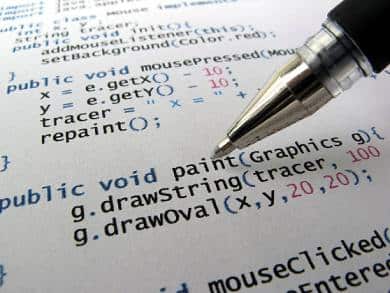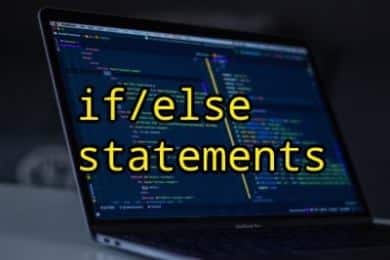So you want to be a game developer? That’s great! Game development is an exciting and challenging field. But you may be wondering, can you become a game developer without a degree?
The answer is yes – but it will take a lot of hard work and determination.
In this blog post, we will outline 7 steps that will help you launch your career in game development. Let’s get started!
Choose A Game Engine To Learn Programming
Choosing a game engine first will allow you to know which programming language you should learn. A game engine will also give you a development environment to compile and test your code.
Instead of setting up a development environment with Visual Studios, for example, you can download a game engine, create a script, and start writing your first if statement.
I would recommend Unreal or Unity for a game engine to start learning. Unreal has the added benefit of block programming to start learning programming logic without knowing a language.
Programming Language Syntax
Now that you have chosen a programming language you’re able to start learning the syntax for that language.
Learning the syntax of a language is knowing how to correctly structure statements or expressions, like setting variables, if statements, for loops, functions/methods, etc.

Proper syntax is fundamental to having functional/working code.
Similar to knowing when to put a period or question mark in English, you must know when you need a semi-colon or curly brace in programming.
Learn Programming Concepts In Order
You may be wondering, what order should I learn the syntax of programming in?
When starting my Computer Science degree our first class started with learning how to set up the main method in Java.

If you’re learning C++ you’ll be learning the same. And in Unity, when you create a new script you’ll be welcomed with a Start and Update function.
The best way to learn programming concepts would be to learn the following in order:
- How to set up a class/main method.
- Variables
- Headers/libraries
- Input/output to the console
- if/else statements
- arrays
- while loops
- for loops
- Functions (methods)
- Objects (then structs if you’re learning C++)
- Data structures (linked lists, maps, vectors, stacks, queues, trees, etc..)
- Algorithms, such as search algorithms.
This order will show you the fundamentals in a digestible way that builds ups in complexity.
Make sure you are learning these in a development environment. It’s one thing to write notes and learn theory, it’s entirely different to program and see these concepts in practice.
Build Problem Solving Skills
Build problem-solving and programming skills by solving problems with programming.
For example, once you learn how to output variables, how do you output 0-10 without using ten output statements? This leads to learning how to use them while or for a loop. Next, how would you display only even numbers in that output?
As you can see several problems can be solved with programming. And, while they seem simple, it all builds problem-solving skills that could be utilized during game development.
This site has a great list of beginner questions you can start with. https://adriann.github.io/programming_problems.html
Learn Logic With Block Programming
Engines like Unreal, GoDot, and GameMaker offer block programming. Block programming allows users to learn how programming logic is without needing to learn the syntax of a programming language first.
It makes programming a visual experience and can help ease newer developers ease into the world of programming.
It’s also entirely possible to create a full game using block programming!
Join A Game Dev. Community
Whether it is online or in person, join a game dev. community. A community will give you access to like-minded individuals, similar to when you are in university.
It will also give you a place to ask questions and even begin answering other community members’ questions. And teaching is one of the best ways to cement knowledge into your head too.

Furthermore, programming can be a lonely, frustrating path at times. Having a community you can talk to or even vent to can help you push through ruts and not give up.
Participate In Game Jams
Game jams are an event where people try to make a video game from scratch. The event usually has a theme to help spark ideas and can be a few hours to a few days.
Because game jams have a limited time frame and give you a theme to work with, it’s a great way to prevent people from overthinking ideas or trying to make things perfect.
Game jams bring in many types of people with a wide array of skills, programmers, artists, animators, musicians, to name a few. This gives you a unique opportunity to work with new people and different personalities.
In the end, you will be making a game, whether good or bad, it’s a game – and that’s the biggest win and accomplishment.
Summary
One of the most exciting careers you can do is to make games. There are several game engines and tools available online that make game development more accessible than ever before. Now, there is nothing wrong with getting a degree and it can give you the structure and environment needed to succeed – but it is expensive!
To be a successful game developer, you need to have strong programming skills. This includes learning the principles of game design, understanding game mechanics, and studying other successful games. It’s also important to have a good understanding of game engines and tools.
Last but not least, it’s important to network and build relationships with other game developers. This can be done by attending game jams and events or joining online communities.
Keep in mind, there are many great books and online resources that can help you with this too. Don’t be afraid to take an intro to programming course online to speed up the process.
So there you have it – our 7 tips for becoming a game developer without a degree!

